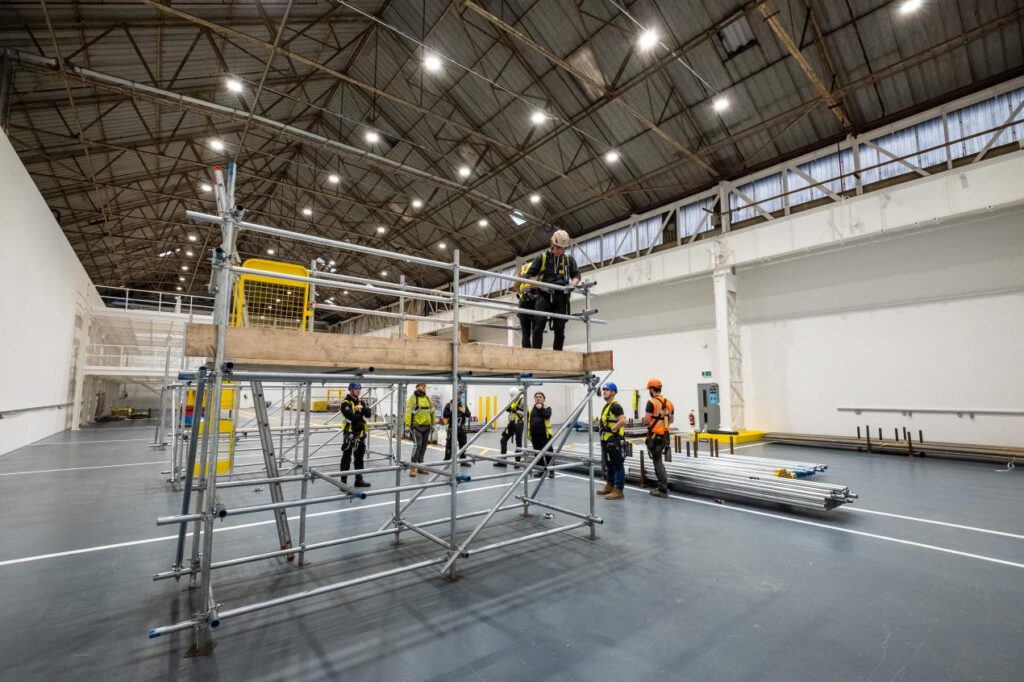CITB to support Welsh construction in leading Britain’s recovery

Supporting Welsh construction businesses while ensuring new recruits are welcomed into the industry are the key goals of @CITB_UK’s plan for 2021/22 for the nation, unveiled today (Wednesday 7 April).
Across Britain, £140 million of industry Levy that will be invested into construction in 2021/22, as funding for employers to train and in business support and services. This investment of 94p out of every pound of Levy CITB receives – rising to 95p in four years – will be targeted at industry’s priorities to ensure that Levy in means skills out.
The key investments for Wales include grants; training and apprenticeship support to help with immediate needs, supporting new workers and learners; work placements to improve the skills landscape; and addressing new challenges including Brexit, digital skills, Net Zero, and climate change.
Leigh Hughes, Director of Corporate and Social Responsibility for Bouygues Construction UK, and CITB Cymru Wales Nation Council Chair, said:
“This plan shows that we’re listening to the industry and investing in what it has told us is most important. We’re targeting Levy money at fewer initiatives to ensure that industry funds work hard to tackle priority issues, addressing both future needs and current challenges.
“Welsh construction is in a leading position to support Britain’s post-Covid economic recovery, with firms offering more training, making less redundancies, relying less on furlough, and having more orders than most British companies. Our work to support the industry will help employers to attract and retain talent, making it easier for new starters, while helping to develop their skills to ensure they can enjoy a rewarding career in construction.”
Mark Bodger, CITB Engagement Manager for Wales, added:
“Welsh industry has bounced back better than expected and is leading the way among the home nations’ recovery. More construction firms remain operational in Wales than elsewhere in Britain, and more Welsh companies are seeing an increase in their work too.
“We have worked closely with the Wales Nations Council to develop the Wales Nations Plan. Ambitious targets include ensuring all homes have an energy “A” rating for all homes by 2050, and lifting 300,000 homes out of fuel poverty by 2030. Our investment to deliver training, while helping to recruit and retain staff, will go a long way to ensuring these goals are realised.”
Caption: This £1.5m scaffolding centre in Swansea will see 350 learners pass through its doors in its first year
CITB is supporting construction in Wales to make a career in the sector easier to access. CITB will build on its successful “See Your Site” initiative that provided 280 learners from 13 colleges with taster experiences alongside 10 employers.
By working in partnership with Careers Wales and employers, CITB is developing a competency framework for the industry that will allow new starters to understand how their career can progress.
CITB increased e-learning to ensure that the pandemic did not hamper development, including a new Covid eCourse. Now CITB is committed to increasing the number of Welsh learners completing their apprenticeship from a recent low of 68%.
CITB’s £3.6 million investment in four Welsh training hubs – in North Wales, Swansea, and two in Cardiff – will ensure Welsh learners have the skills they need. The £1.5m scaffolding centre in Swansea has already trained 100 learners in its first three months, with 350 more to pass through its doors in the first year.
You can view the full plan by clicking here.
CITB works with industry and government to accurately capture the sector’s needs, fund training, improve standards and ensure the industry has the workforce it needs. It is paid for by a levy on the construction industry itself. CITB is an arm’s-length body of the Department for Education.
Key stats about construction in Wales:
- The British construction industry has reduced by 12.5% compared to 2019
- 93% of Welsh firms remain operational, compared to 81% in Scotland and 72% in England
- Half of Welsh employers say their orders are up, with only 14% recording a reduction, compared to a GB average of a 46% rise and 20% drop
- Only 14% of Welsh firms are still using furlough, compared to 28% of English and 23% of Scottish
- Just 8% of Welsh businesses expect to make redundancies, compared to 28% in England
- 18% of Welsh businesses will offer more training, and just 8% will offer less
- Some 16% of Welsh forms plan to start apprenticeships, down from 22% pre-Covid











Responses